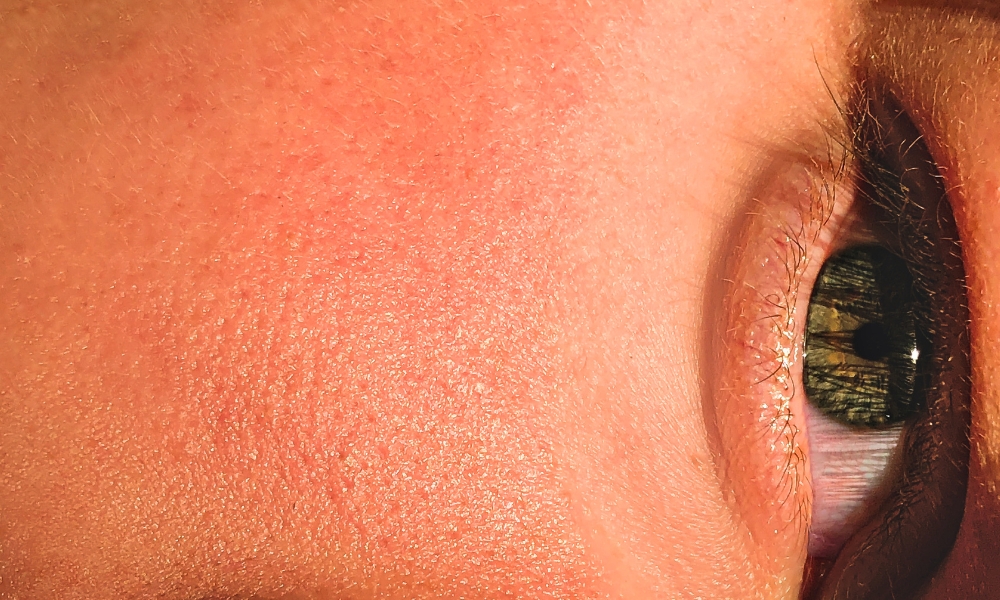The Endocrine System: A Brief Overview
The endocrine system is made up of glands that release hormones. These hormones control growth, metabolism, and sexual health. The skin responds to hormonal signals, adapting its condition and appearance accordingly.
Hormones That Influence Skin Health
Estrogen: This hormone contributes to maintaining skin moisture, elasticity, and thickness. Decreased levels of estrogen during menopause can lead to signs of skin ageing.
Testosterone: High levels of this hormone can increase oil production in the skin, leading to acne. It also influences hair growth across the body.
Cortisol: Known as the stress hormone, elevated cortisol levels can lead to inflammatory responses in the skin and exacerbate conditions like eczema and psoriasis.
Thyroid Hormones: Imbalances in thyroid hormone levels can manifest through the skin, with hypothyroidism causing dryness and hyperthyroidism leading to moist and smooth skin.
Growth Hormone: It plays a role in skin repair and regeneration, with declining levels contributing to slower wound healing and reduced elasticity as we age.
Hormonal Changes Across Different Life Stages
For example, during puberty, increased testosterone levels often lead to acne. Pregnancy can lead to stretch marks and hyperpigmentation as a result of hormonal shifts.
Hormonal Imbalances and Skin Disorders
Polycystic Ovary Syndrome (PCOS): This hormonal disorder, caused by hyperandrogenism, can lead to symptoms such as irregular menstruation, acne, and hirsutism. It is a complex multigenic disorder influenced by epigenetic and environmental factors. Treatment options include hormonal birth control, which can help regulate menstrual bleeding, reduce excessive hair growth and acne, and decrease the risk of endometrial cancer.
Postinflammatory Hyperpigmentation (PIH): This condition is common in patients with darker skin tones and can occur on any area of the body following external injuries or intense inflammatory conditions. It is often associated with acne and can have significant impacts on mental health and quality of life.
Acne-related Postinflammatory Hyperpigmentation: This condition can show different pigment patterns and degrees of vascularity in both facial and nonfacial areas. Dermatoscopic examination is recommended before treatment initiation.
Pregnancy-related Skin Conditions: During pregnancy, women can experience benign hormone-related changes such as hyperpigmentation, striae gravidarum, hair and nail changes, and vascular changes. Preexisting conditions like acne vulgaris may vary in severity during pregnancy. Pregnancy-specific skin conditions include atopic eruption of pregnancy, polymorphic eruption of pregnancy, pemphigoid gestationis, intrahepatic cholestasis of pregnancy, and pustular psoriasis of pregnancy.
Managing Hormonal Effects on Skin Health
A holistic approach to managing hormonal effects on skin health includes lifestyle modifications such as a balanced diet, regular exercise, and stress reduction. Sleep may also play its part in skin health through the complex intertwinement of hormones. Any medical treatments, when necessary, should be overseen by qualified health professionals, with a focus on identifying if hormones are actually the cause of the skin issue in question. Dermal Health knows only too well the importance of a tailored skincare routine to help to address these hormonal fluctuations.
Advancements in Hormone-Related Skin Health
The field of dermatology is always moving along with new advancements. New treatments targeting hormonal pathways and personalised medicine are becoming increasingly prominent. Dermal Health remains committed to incorporating these advancements into our clinic to offer the best care for our clients.
Hormonal skin treatments
Understanding the effects of hormones on skin health is essential for proper skincare. Dermal Health prides itself on expert knowledge in this area, ensuring that our clients receive the most effective and scientifically sound advice for maintaining healthy skin throughout their lives.
If you suspect hormones are affecting your skin or have any skin concerns, we invite you to book a consultation with us.

